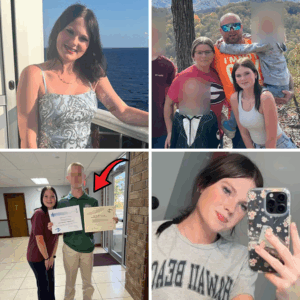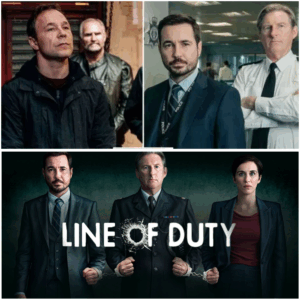In the sun-drenched world of Caribbean cruises, where turquoise waters lap against gleaming decks and laughter echoes through the salty air, tragedy can strike with the suddenness of a squall. For the Kepner family, what began as a long-awaited escape from the everyday grind of Florida life turned into a nightmare on November 7, 2025, when 18-year-old Anna Kepner was found lifeless in the cramped confines of her stateroom aboard the Carnival Horizon. Described by those who knew her as a burst of unfiltered joy—a “happy” teen whose infectious energy could light up the dimmest room—Anna’s death has unraveled a chilling timeline, pieced together through federal probes and whispered family confidences. As the FBI’s investigation deepens, pointing fingers at her own 16-year-old stepbrother, the case exposes the fragile underbelly of a vacation paradise, where isolation at sea amplifies every secret and suspicion.
Anna Marie Kepner entered the world on June 13, 2007, in Titusville, Florida—a coastal town nestled about 40 miles east of Orlando, where the Indian River meets the Atlantic in a gentle embrace. Born to Christopher Kepner, a dedicated father navigating the complexities of blended family life, and Heather Wright, her biological mother, Anna grew up in a household brimming with the chaos and warmth of seven siblings. Her family tree was a tapestry of half-siblings and steps: Andrew, the eldest brother with his steady presence; Tim and Alex, the mischievous middle duo; Connor and Cody, the younger adventurers; and the girls, Kylie and Brooke, who looked up to Anna as both protector and playmate. Though her parents had parted ways before she could form clear memories of them together, Anna bridged those divides with effortless grace. She was the glue, the one who organized impromptu park outings or dragged her siblings to Halloween Horror Nights, turning ordinary afternoons into epic tales.
Titusville suited Anna’s spirited soul. The town, with its proximity to Kennedy Space Center and its easy access to beaches, mirrored her love for the outdoors—the sun warming her skin, the water calling her name. She thrived at school, bouncing between Titusville High, where she cheered on the varsity squad with flips and cheers that drew crowds, and Astronaut High, before settling at Temple Christian School as a senior. Graduation loomed in 2026, but Anna’s ambitions stretched far beyond caps and gowns. A die-hard Georgia Bulldogs fan, she harbored dreams of donning the red-and-black uniform as a UGA cheerleader, her routines a whirlwind of athleticism and charisma. But her heart pulled her toward service: she’d just aced her military entrance exam, chatting animatedly with Navy recruiters about a future wrangling K9 units as a police officer. “She wanted to protect people, to make her community safer,” her father would later recall in hushed tones to local reporters. “That was Anna—always thinking of others first.”

Those who crossed paths with her couldn’t help but be swept up in her orbit. “Pure energy,” her best friend gushed in a tear-streaked interview. “Bubbly, funny, outgoing—she had no filter, and that was her magic.” Anna’s days were a montage of TikTok dances in front of her bedroom mirror, playlists blasting everything from pop anthems to Shawn Mendes ballads (heavy metal was her one musical kryptonite). She adored the simple joys: crafting butterfly collages with her grandmother, whom she called “Memaw,” solving jigsaw puzzles under the glow of a lamp, or splashing in the waves on boat days. Kids gravitated to her like moths to flame; dolphins and butterflies were her spirit animals. “If you were down, she’d crack a joke that had you doubled over,” a teacher remembered. “She radiated light—made you feel seen.” In a world quick to dim young dreams, Anna burned bright, unapologetically herself.
It was this vibrant spirit that made the family cruise all the more poignant—a chance to celebrate amid the stresses of daily life. The Carnival Horizon, a behemoth of leisure with 14 decks, waterslides twisting like serpents, and infinity pools overlooking endless ocean, departed Miami on November 5, 2025, bound for a week-long jaunt through the Caribbean. For Christopher, Shauntel Hudson—his wife and Anna’s stepmother—and their three youngest children, it was meant to be a reset. Anna, ever the dutiful big sister, joined with enthusiasm, her suitcase stuffed with sundresses, sunscreen, and a dog-eared copy of her favorite puzzle book. The itinerary promised idyll: stops at Cozumel, Mexico; Roatan, Honduras; and Mahogany Bay, Belize, with days at sea for lounging, shows, and family bonding. Photos from the early days capture Anna’s grin: wind-tousled hair, a mocktail in hand, posing with her stepsiblings against the ship’s neon-lit atrium. “Best trip ever,” she captioned one Instagram story, her face alight with that signature sparkle.
But beneath the surface glamour, tensions simmered in the close quarters of Cabin 10234, a standard ocean-view stateroom on Deck 10. Blended families, for all their richness, carry fault lines—jealousies over attention, spats over space. Anna, at 18, straddled the worlds of teen independence and sibling responsibility, often mediating squabbles among the younger ones. Her 16-year-old stepbrother, whom we’ll refer to here as T.H. to respect his minor status, was navigating his own turbulent adolescence. Sources close to the family describe him as introspective, sometimes withdrawn, a contrast to Anna’s extroverted flair. The cruise, with its enforced proximity, amplified these dynamics. Late on November 6, as the ship sliced through moonlit waves en route to Cozumel, Anna complained of feeling unwell—a nagging headache, perhaps seasickness or the onset of something more sinister. “I’m just gonna crash early,” she told her father over dinner in the ship’s bustling Lido Marketplace, forcing a smile before retreating to the cabin. The family nodded, assuming rest would revive her by morning. Little did they know, those would be her last words.
The timeline that unfolded next, as reconstructed by FBI investigators and Carnival security logs, reads like a script from a psychological thriller—eerie in its banality, devastating in its implications. At 7:45 a.m. on November 7, the ship hummed with predawn activity: early risers queuing for breakfast buffets, crew prepping for the day’s port call. Anna was absent from the family table, her empty chair a quiet anomaly. By 8:30 a.m., concern creased Christopher’s brow. “Where’s Anna?” he asked the group, scanning the deck for her familiar silhouette. A quick text to her phone went unanswered; a knock on the cabin door yielded silence. The search began informally—siblings fanning out to the pool deck, the gym, even the teen club where Anna might have snuck in for a late-night game of air hockey the evening before.
By 9:15 a.m., the informal hunt escalated. Cabin stewards, alerted by the family’s growing alarm, joined in, their master keys granting access to common areas. Swipe card data, later pored over by federal agents, painted a fragmented picture: T.H.’s card had registered an entry to the stateroom at 10:42 p.m. the night prior, after Anna had retired. No exits until 6:20 a.m., when he slipped out for a solitary walk on the promenade deck. Surveillance footage from hallway cameras—grainy but telling—showed him lingering outside the door around 10:50 p.m., a shadow of hesitation before vanishing inside. What transpired in those hours remains the probe’s black box, but whispers from onboard interviews suggest a heated exchange: raised voices muffled by the hum of the ship’s engines, a sibling rift boiling over into something irreparable.
At 11:17 a.m., the ship’s medical team pronounced Anna dead in the cabin. The discovery came not from family, but from a routine housekeeper’s turn-down service, prompted by the “do not disturb” sign that had dangled too long. Pushing aside the rumpled duvet, the cleaner froze: there, crammed into the narrow space beneath the queen-sized bed, was Anna’s body, swaddled in a tangle of blankets and sheets as if hastily concealed. Bruising marred her arms and neck—subtle at first glance, but forensic lights would later reveal a pattern suggestive of restraint or struggle. No overt signs of violence screamed from the scene, yet the positioning screamed cover-up. The cabin, otherwise tidy, bore faint disarray: a toppled water glass on the nightstand, a phone charger yanked from the wall. The air conditioner droned on, masking any odors, delaying detection in the tropical humidity.
Panic rippled through the vessel like a rogue wave. The Horizon, carrying over 4,000 souls, diverted briefly from its course to allow a medical chopper rendezvous, but it was too late. By noon, the captain’s voice crackled over the PA system, urging calm while Carnival’s crisis team cordoned off the deck. The ship pressed on to Cozumel, but the festive veneer cracked—passengers exchanging uneasy glances, rumors festering in buffet lines. Upon docking in Miami the next day, November 8, FBI agents in crisp windbreakers swarmed the gangway, escorting Anna’s body ashore under a white sheet. The medical examiner’s preliminary exam deferred rulings on cause and manner, citing the need for toxicology and deeper tissue analysis. Seasickness? An allergic reaction? Or something far darker? The questions hung heavy as the family disembarked, shell-shocked, into the fluorescent glare of PortMiami.
The federal probe ignited immediately, its jurisdictional hook the international waters where the death occurred—high seas governed by U.S. maritime law. The FBI’s Miami field office took the reins, their team a blend of forensic specialists and shipboard experts. Carnival, no stranger to such shadows (recalling past incidents of overboard falls and onboard assaults), handed over terabytes of data: over 1,000 hours of CCTV from 300 cameras, electronic logs tracking every door swipe, and metadata from Anna’s iPhone, last active at 10:55 p.m. Interviews cascaded—crew recalling Anna’s laughter at the previous night’s comedy show, passengers noting the family’s animated dinners, and siblings parsing the mundane into the menacing. T.H., sequestered with a relative upon return to Florida, clammed up under questioning, his lawyer (procured hastily by his biological father) advising silence.
The breakthrough—or bombshell, depending on one’s lens—dropped on November 19, via an unlikely conduit: a Brevard County family court filing. Shauntel Hudson, Anna’s 36-year-old stepmother, sought to postpone a custody hearing tied to her prior marriage, citing an “extremely sensitive and severe circumstance.” In stark legalese, the motion revealed FBI briefings: agents had zeroed in on one of her minor children—T.H.—as a person of interest, with “potential criminal charges” looming. The document painted a tableau of familial fracture: T.H. relocated for the safety of his younger sister and another sibling, the household fracturing under investigative scrutiny. Sources intimated an altercation, perhaps rooted in teenage turf wars—jealousy over Anna’s favored status, a borrowed phone sparking fury, or deeper resentments unearthed by the cruise’s pressure-cooker confines. “It was building,” one family associate murmured off-record. “Anna was the golden child; he felt sidelined.”
For the Kepners, the revelation was a gut punch atop grief. Christopher, hollow-eyed at Anna’s funeral that week in Titusville, clutched a cheer pom-pom stained with her glitter. “She was our sun,” he told mourners, voice cracking. Shauntel, torn between maternal instincts and the weight of implication, echoed the plea for privacy: “We’re shattered—pray for us.” Heather Wright, Anna’s mother, channeled anguish into advocacy, vowing to push for stricter onboard safety protocols. “Cruises are floating cities,” she said. “They need eyes everywhere.” The siblings, from boisterous Andrew to tender Brooke, huddled in shared sorrow, Anna’s absence a void no puzzle or beach day could fill.
As the Horizon sets sail anew, scrubbed of its ghosts, the case lingers in limbo. No charges have been filed against T.H., the FBI’s silence a deliberate veil over evidentiary gears grinding toward indictment or exoneration. Toxicology reports, expected soon, could pivot the narrative—from accidental overdose to deliberate act. Broader ripples touch Carnival’s reputation: whispers of enhanced cabin checks, teen-only zones with counselors, and AI-monitored hallways. For an industry banking on escapism, Anna’s story is a stark reminder—vacations don’t vaccinate against human frailty.
In Titusville, a makeshift memorial blooms outside Temple Christian: cheer bows tied to fences, dolphin plushies from well-wishers, notes scrawled with “Shine on, Anna.” Her TikToks loop eternally—dancing, laughing, living large. The happy teen, gone too soon, leaves a legacy of light amid encroaching shadows. As the probe confirms its chilling timeline, one truth endures: beneath the waves of any paradise, darkness waits for no invitation. For Anna’s family, healing means navigating uncharted seas, one heartbroken dawn at a time.




